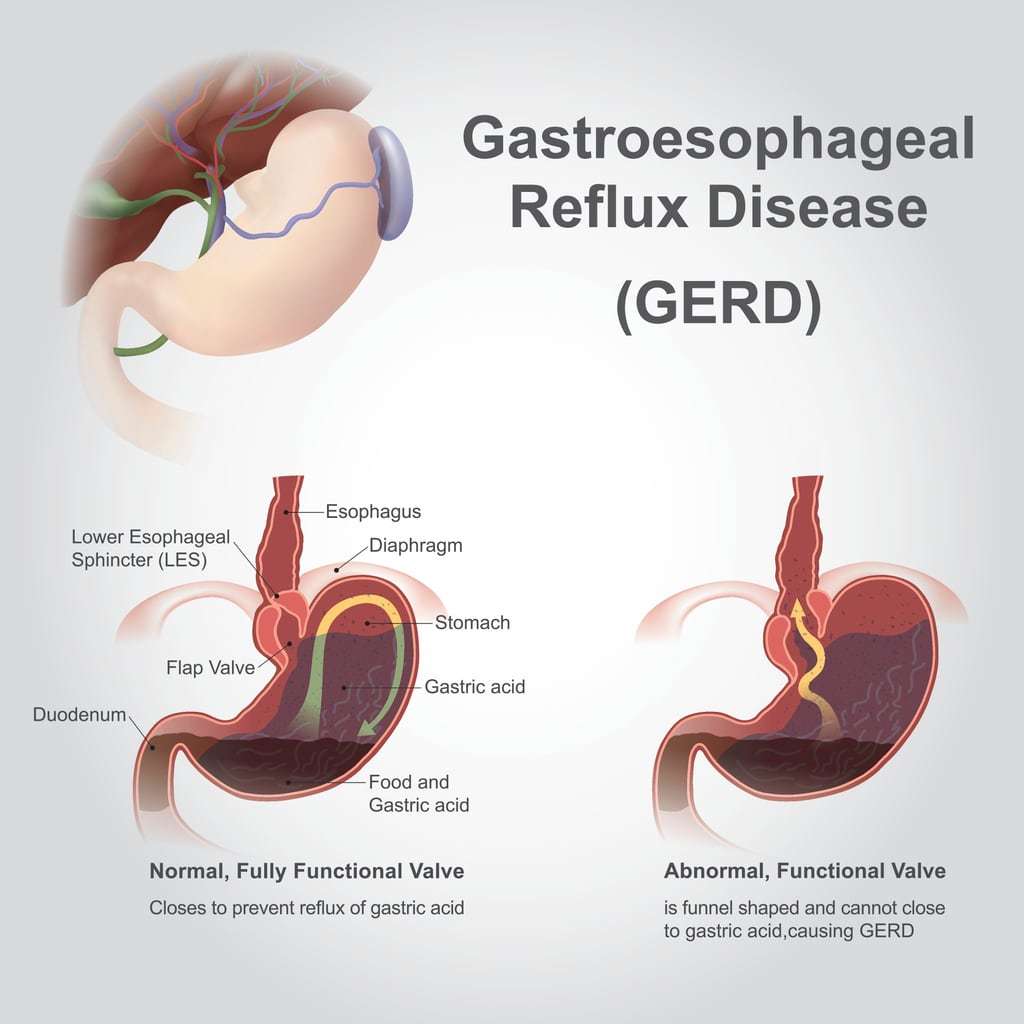Heartburn very common, and the discomfort that most people feel is not something to be worried about. But what if it won’t go away? At what point does heartburn become a cause for concern? Do you find yourself reaching for over the counter antacids regularly? Do you experience discomfort after having a large meal? Do you find yourself reacting poorly and being uncomfortable after eating certain foods? You might be experiencing a number of GI issues involving some combination of the esophagus and stomach acid, all of which have similar symptoms but varying causes and treatment paths. These disorders include acid reflux, heartburn, and GERD.
How To Identify Heartburn
Contrary to the name, heartburn has nothing to do with your heart. Sometimes a small amount of stomach acid escapes your stomach and sits in your lower esophagus, creating an uncomfortable burning sensation that, because of its location near the heart, has been given the name “heartburn.”
Mild heartburn can pop up on occasion for a variety of reasons, but sometimes it can hinder your regular daily activity. If it gets that intense, or it seems like it won’t go away or is consistent over many days, it is important to have it checked.

How Do I Know If It's Simple Heartburn Or Something Else?
Heartburn is the most common of the above, with more than 60 million Americans being afflicted by it at least once a month. If you find yourself needing to take over the counter antacids every once and a while, you’re probably dealing with heartburn. This isn’t a cause for concern, typically, and can usually be kept under wraps with self-treatment. However, if the heartburn is more frequent or severe, you might have acid reflux or GERD. Acid reflux is caused when the lower esophageal sphincter isn’t working properly, causing acid to flow back into the esophagus, which causes irritation. The symptoms of GERD and acid reflux overlap, but the diagnosis is determined by how frequent and how severe the symptoms are. Untreated, GERD can cause permanent damage to the esophagus. If you find yourself suffering from acid reflux and heartburn regularly, it’s time to call GI Associates for a diagnosis.
What Triggers Heartburn and Acid Reflux?
Depending on what condition you have, there are a number of potential triggers for heartburn and reflux. They include eating too much, especially close to bedtime, being pregnant or obese, drinking coffee, alcohol, or carbonated drinks, and taking certain over the counter medications. Chocolate, spicy foods, and acidic foods can also cause a reaction.
Depending on your individual case, our doctors will recommend a variety of treatment courses to manage your reflux or GERD. We can help you determine the proper lifestyle and diet changes that will help you feel better. There are also certain medications that can lessen the symptoms. Contact GI Associates today for an evaluation so we can find out what is causing your discomfort and how we can help.
